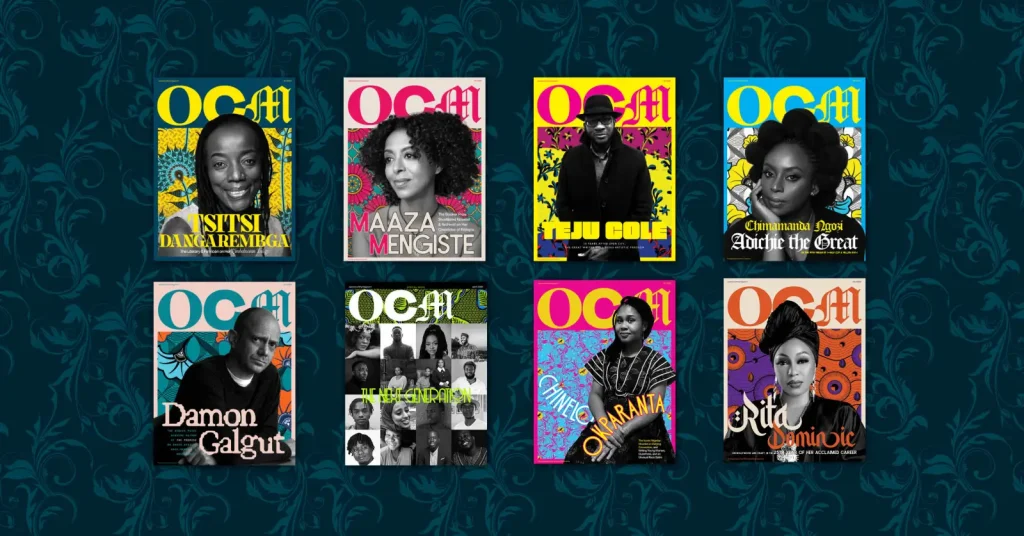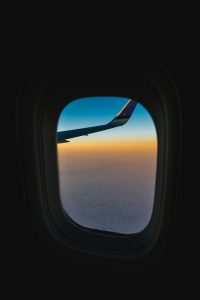I just did an interview with The Republic, my first in three years. It is a long one, but the questions by the journal’s associate editor Peace Onafuye are good and prompted me to discuss a range of issues. One troubling one is The New York Times’ and Literary Hub’s respective lists of the “best books of the 21st century.” I find both lists laughable for their exclusion of Africans and I tweeted about it then.
The exclusion of Africans from @nytimes’ and @lithub’s lists of “best” books of the 21st century was deliberate, ignorant, laughable, and lowered my opinion of their literary credentials.
— Otosirieze (@Otosirieze) August 14, 2024
Ultimately, it reinforced for me the absolute necessity of our work at @OpenCountryMag.
See below a few of my answers to the questions.

What’s the last thing you read and disagreed with?
Much of what passes as literary culture analyses in American publications suffers from intellectual protectionism, at best, or amputation of logic, at worst. ‘The 100 Best Books of the 21st Century’ list by The New York Times Book Review, which has just one African writer (Chimamanda Ngozi Adichie’s Americanah), and then this one titled ‘What the New York Times Missed: 71 More of the Best Books of the 21st Century’ by Literary Hub, which also has one African (Fiston Mwanza Mujila’s Tram 83). The Literary Hub piece annoys me more because it pretends to be a corrective and then commits a worse erasure. It claims that the New York Times missed something, but that thing cannot possibly be Africa; it says there are 70 more better written books from anywhere else than any from Africa. Think about that for a moment. It means that these people—the New York Times said it polled ‘503 novelists, nonfiction writers, poets, critics and other book lovers’ with ‘a little help from the staff of The New York Times Book Review’—do not think about Africa as an important contributor to global literature. If you do not know anything about the literatures of a continent that represents almost a fifth of the human race, then you have no business curating global lists, because all you succeed in doing is lowering people’s opinions of your credentials. It is naked bias, and I cannot tell which is worse, that they knew or didn’t.
To be clear, I am not asking anyone to include Africans for the sake of ‘representation’, which is a very silly argument in itself; I am stating that some of the very best writers and very best books of the 21st century come from Africa. I am not talking about ‘literary success’— another bad argument for this—but about actual skill on the page.
It is an under-discussed problem that African writers are just not credited enough as innovators, for their adaptiveness to solving problems on the page. When Damon Galgut flits between the first- and third-person in one sentence in his book, In a Strange Room, the acknowledgement never transcends book reviews into literary culture essays or lists. Autofiction is prominent in the American literary discourse, but there are precious few in that genre who write from three continents and articulate culture and politics in the insightful, digestible way that Teju Cole does in Open City and in Known and Strange Things. If a white writer had brought fusion fiction into the discourse as Bernardine Evaristo did with Girl, Woman, Other, they would be on that list.
I have read enough books on that New York Times list and some other books that make lists like that, and when it comes to that blend of serious subject, character acuity, authorial vision, emotional range, and overall artistic merit, I do not know any 21st century English-language novel of literary fiction that matches Adichie’s Half of a Yellow Sun. Maybe there are, but I do not know them, and I’d appreciate it if someone pointed them out. I feel that if that novel were about the tragedy of the Holocaust and not that of Biafra, it would be number one on that list. She would have two novels there, including Americanah, which deserves its place. The critics polled by the BBC in 2015 ranked both novels the 10th and 13th best of the century so far; I disagree with 10th but at least it is a list that compels respect.
All that said, it is 2024 and Africans should not be begging anybody to be included in anything, especially when the metrics of inclusion are suspiciously para-literary. We should advocate, but no one should be begging. And yet before we demand that non-Africans recognize us, do we Africans recognize each other? Do we write essays and give each other credit when earned? Do we elevate each other by merit? Do we hold up good books as good books especially when written by people who are not friends or in our circles? And that is where much of African literature wobbles. If we do not do that enough, we have no moral authority to expect that others do it for us.
You’re the founder and editor-in-chief of Open Country Mag. Who/what was your strongest inspiration to become an editor?
I became an editor for a single reason: to help make space for Nigerian writers of my generation. If the space were there, I would not have prioritized editorial work. I was coming up in the scene and watching my peers come up and form communities, and we needed help getting ourselves into the mainstream. That help was never going to come from an African literary culture that is ageist and classist; it needed to come from us, outsiders in the system. I knew I could do something, so I did. And I don’t think—looking at that set of writers and editors that came of age around 2016—that I was the only one with that motivation.
It gives you a different perspective when you see, today, that many new writers in the scene take for granted things that were rare as recently as 2016. Now, younger writers can be brave and say they are queer; now they can be bold and make contributions to important conversations without anyone succeeding in discrediting them because of their young age. Now, you don’t need to be born in the West or to have studied there in order to be taken seriously. It wasn’t that way in 2016. We broke class barriers and recentred talent and the work. I couldn’t be prouder of that.
There were editors on the scene doing good work, of course, but no one was doing what I felt my demographic needed. I started as an independent editor of online anthologies, curating the Art Naija Series, including Enter Naija: The Book of Places and Work Naija: The Book of Vocations. It may have been beginner work, but it was and still is a novel concept that I may revive. That series was exciting for the Nigerian writers who were featured and validated the feeling that we were in the midst of something new. I carried that to Brittle Paper and made the blog inclusive of younger and queer writers, and I created and ran the Brittle Paper Awards for three years, which brought a number of relatively unknown writers to the foreground. I ended the awards when my time there ended. I was 23 then and it was an audacious move: it was the first awards run by an African publication and I remember people asking me: Who will judge it? It was me and the founder, but I didn’t tell them that. My position was: it was time to bin the notion that a young writer working in Africa could not be a major curator, could not do things that no one else before them had.
When I became editor of Folio Nigeria by CNN, I viewed it as a learning ground, to hunt for ideas outside literature and reconfigure them for literature. By the time I started Open Country Mag, I was ready for something much bigger, something that would finally let me employ everything I had learned. I made a list of everything I had always wanted to do and everything we still lacked in African media and laid out a plan to get there. It Is why our longform profiles are foundational, tracing the subject’s journey and putting them in a context that acknowledges that they are not working in isolation.
In truth, I am also motivated by a kind of shame that I have heard about and have watched people suffer from: we have so little on the continent, compared to the West, and there’s something about being infrastructurally stranded that dampens zeal and deepens an inferiority complex. I approach my work from a place of equal footing with Western publications. What they can do, we could do—if we had what they have. So, all of it is for one reason: to build the infrastructure that I needed when coming up but did not have, infrastructure that could benefit writers and motivate those behind to build more. We need more of everything.

This is one of my favourite interviews. I also discuss my editing process and what makes “great stories” great.



